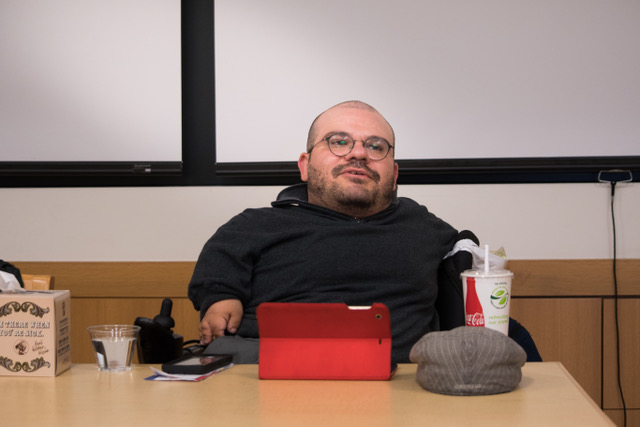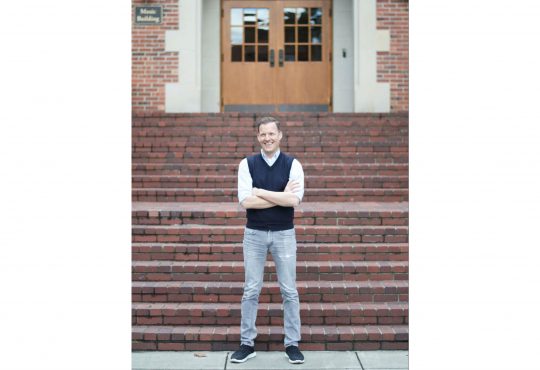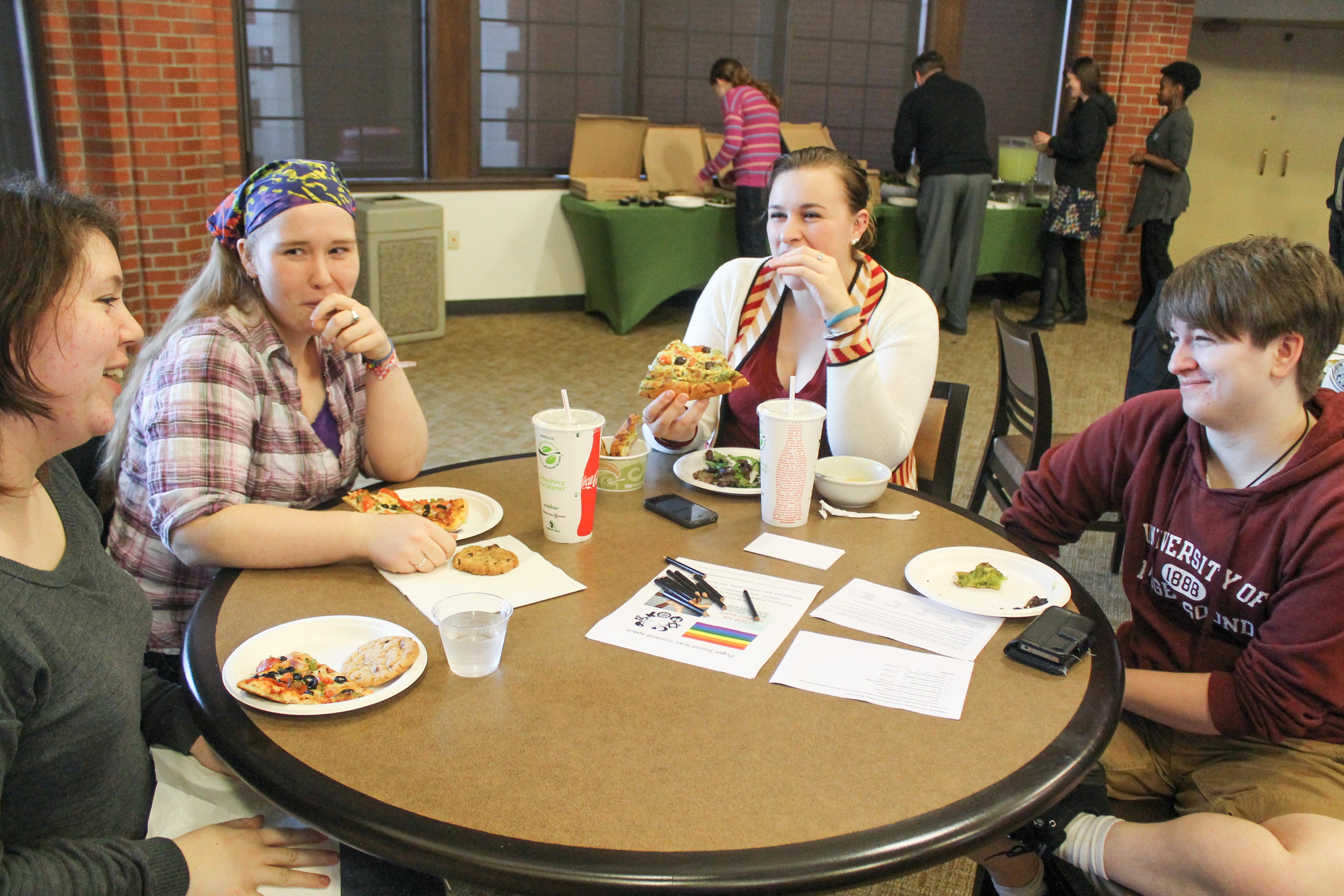
On Oct. 26, University of Puget Sound students and faculty had the opportunity to take part in an engaging discussion on current bioethical and philosophical debates. Those who participated joined in welcoming San Diego State University Professor Joseph A. Stramondo in presenting his lecture, “Epistemic Authority, Adaptive Preferences, and Judging the Quality of a Life with Disability.” The lecture was sponsored by the philosophy department, co-sponsored by the bioethics program, the Center for Intercultural and Civic Engagement and the Office of Diversity and Inclusion, and received further support from the Offices of Business and Security Services. It was also held in conjunction with the screening of the documentary “Far From the Tree” on Oct. 19, 20 and 21, which featured Stramondo and his wife.
In his lecture, Stramondo discussed multiple criticisms of the idea of adaptive preferences and the practice of physician-assisted suicide. “Adaptive preferences” refers to the reformed preferences of people in deprived circumstances that fall within their often limited range of accessibility.
“Disability activists and philosophers of disability have been defending the idea that disabled people are reliable, authoritative sources of knowledge about their own well-being,” Assistant philosophy Professor Sara Protasi said. “That is, when they say that they are happy and live good lives, we should not dismiss their testimony as a matter of ‘adaptive preferences.’ … Adaptive preferences are supposed to be somewhat inauthentic, or involving some form of self-deception.”
Although decisions regarding quality of life are entirely up to each individual person, non-disabled people tend to interpret the opinions of those who are disabled as being incorrect or invalid. Non-disabled people assume that adaptive preferences have played a role in compromising these outlooks on life as disabled people have “settled” for something less.
Stramondo took into consideration these viewpoints on adaptive preferences and compared the concept to Aesop’s fable of “The Fox and the Grapes.” This story describes a fox who deems certain grapes “sour” simply because they are too high for him to reach. Thus, he modifies his preferences and bases them on what is immediately accessible to him.
“The fox’s subjective preferences are based on a fiction that he has convinced himself of in order to cope with the objective limits within which he must live,” Stramondo said.
This motif of “sour grapes” played an integral part in Stramondo’s lecture as he continually referred back to the fable to convey the manner with which non-disabled people discuss disabled people’s communicated accounts of wellbeing. He was able to apply this to the idea of physician-assisted suicide as well.
“Sometimes, when disabled people seek out physician-assisted suicide, it’s an expression of an adaptive preference for death,” Stramondo said. “This preference has been developed under oppressive conditions that have severely constrained other choices that they might have otherwise had and distorted their assessment of their own quality of life.”
Stramondo continuously argued that the choices disabled people make are autonomous and highly reflective of their own well-being, not influenced by these concepts that non-disabled people have created. In this way, his lecture directly pertained to the philosophy department’s ongoing debates and discussions.
“Philosophy of disability is an important and burgeoning field that explores questions concerning the nature of disability, the rights disabled people have, the reality of discrimination against disabled people,” Protasi said. “These are questions that are important for their practical implications for disabled people, but also important in themselves, as interesting philosophical questions. They also echo discussions that have taken place with regard to other kinds of identity, such as race, gender and sexual orientation.”
These similar discussions are apparent in “Far From the Tree,” which follows families who face particular everyday challenges, but do so in a loving and caring way. Stramondo and his wife are among these families that navigate life with empathy and consideration. The documentary similarly addressed philosophical and bioethical issues of how the world perceives those who are different.
“I hope students will get a sense of how important these topics are, and how philosophy can have very practical implications for people’s lives,” Protasi said. “Philosophy engages with every aspect of our lives, from the most abstract to the most concrete.”
Both Stramondo’s lecture and the documentary are prime examples of the philosophy department’s integration of real-world discussion into its curriculum. Having held other lectures in the past, the department leaders are likely to host engaging events in the future, something Puget Sound students can look forward to.


